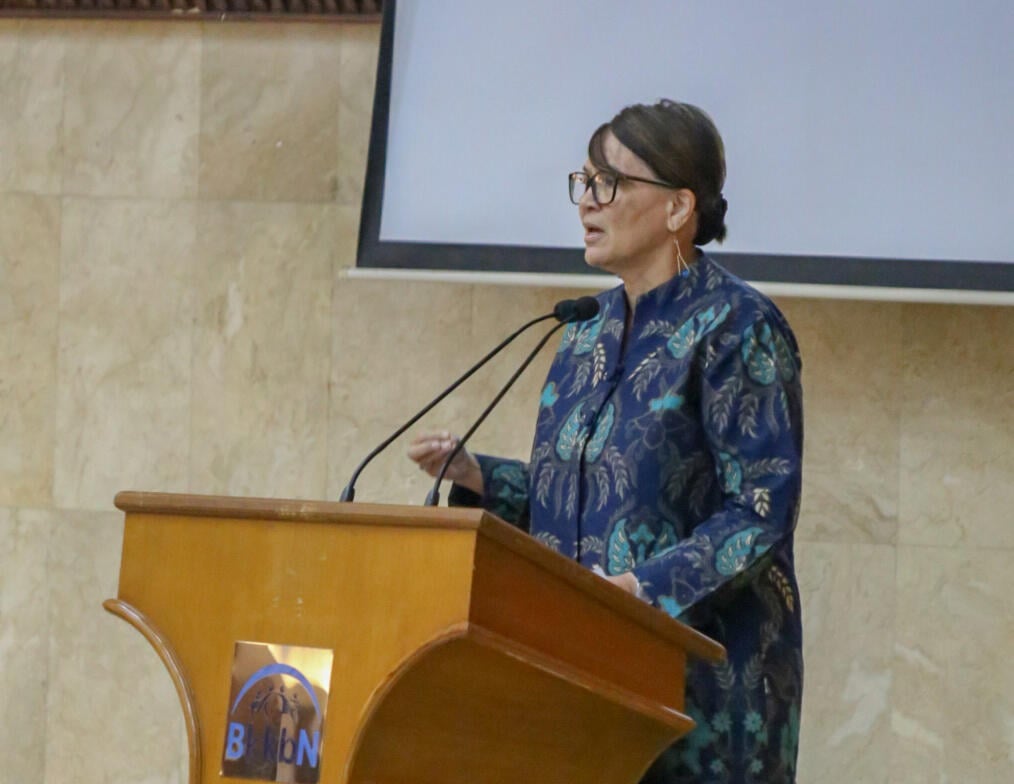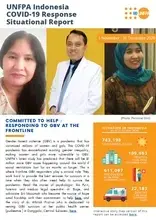For the commemoration of the World Population Day 2018, UNFPA Indonesia Representative Dr. Annette Sachs Robertson provided opening remarks at the National Population and Family Planning Agency, under this year’s theme, “Family Planning is a Human Right”. This theme is aimed at reinforcing collective understanding of family planning (FP) within a rights-based paradigm, celebrating national achievements, and re-pledging the commitment to voluntary and informed family planning, upholding a key principle of the Sustainable Development Goals of “leaving no one behind.”
Dr. Robertson conveyed the meaning of family planning as a human right: voluntary family planning programmes, free from coercion, results in contraceptive use, and should be based on full, free and informed choice, for everyone regardless of residence, socioeconomic status, age and marital status.
Dr. Robertson reiterated the 1994 Cairo International Conference on Population and Development where 179 governments, including Indonesia, were committed to ensuring family planning as a basic human right, a premise of which the term ‘population control’ no longer has a place. As a global promise, through the SDGs, world leaders have pledged to ensure “universal access to sexual and reproductive health care services, including [family planning], information and education” by 2030.
To reach this goal, Dr. Robertson elaborated that rights-based family planning must have the “5 As”:
- Available in sufficient quality,
- Accessible in ways that are nondiscriminatory and accessible physically and financially,
- Acceptable in the sense of being respectful of all individuals,
- Advanced or good quality,
- Accountable to the communities in which they are served.
Prof. Dr. Imam Prasodjo, from the University of Indonesia, stated that although parents have a right to determine the number of children that they want, they must also think responsibly on fulfilling the rights of their children. Prasodjo, added, “The current paradigm in family planning is that it should not be imposed. That is the meaning of family planning as a human right…let the discussions continue.”
UNFPA is fully committed to support Indonesia’s efforts to uphold the rights of individuals, especially women, to determine the spacing and the number of children they want. Dr. Robertson concluded, “We will continue to strive to end all unmet need for voluntary family planning by 2030.”



